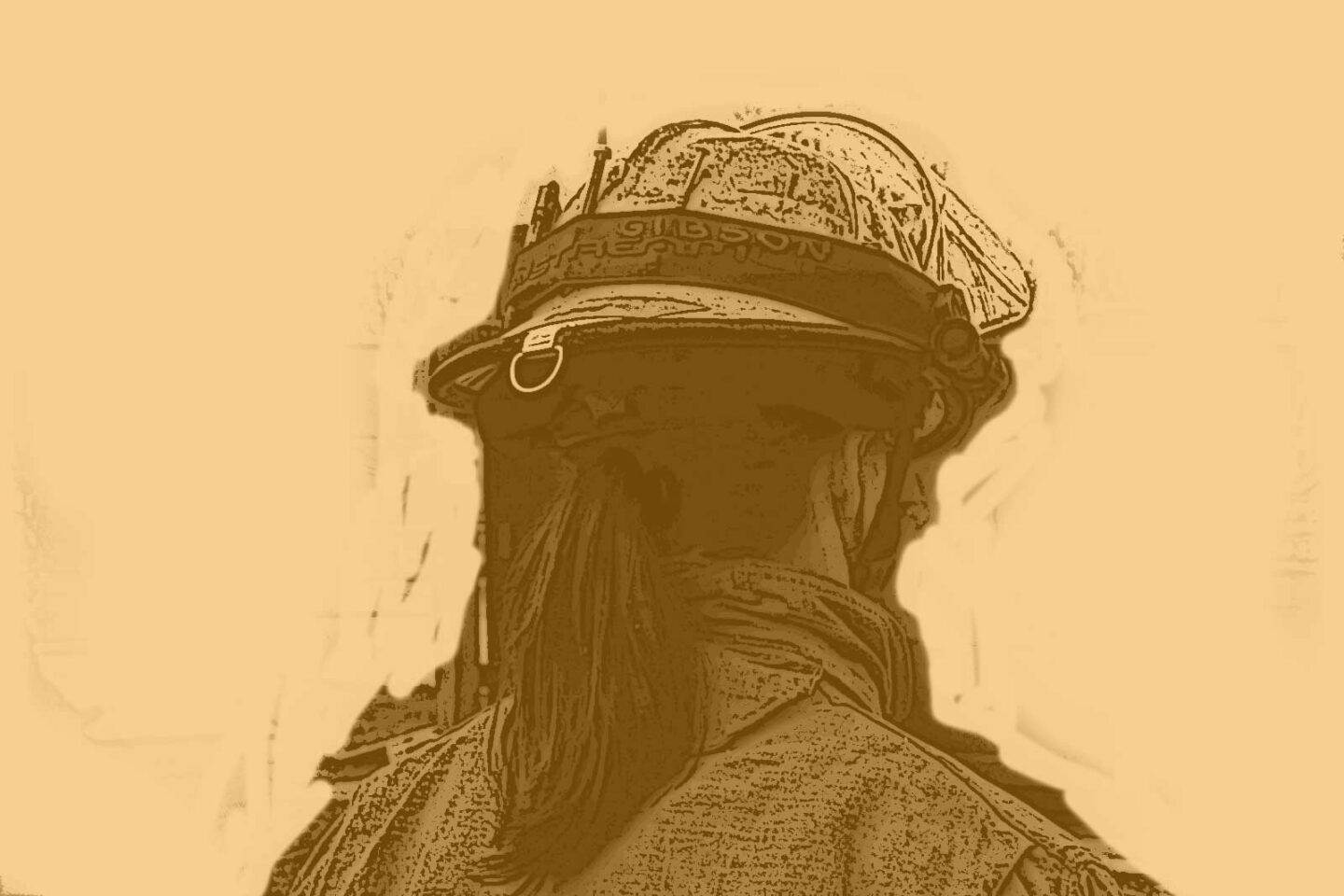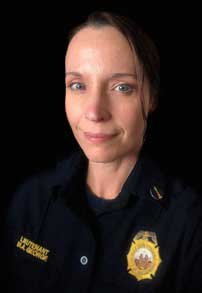
By Mandy George
It is easy to say that interview preparation is an overdone topic in fire service publications. There are dozens of Web sites and entire companies devoted to preparing a candidate for the highly selective and competitive firefighter trainee hiring process. Potential firefighters can sign up to be mentored, trained, and assessed in the interview process. Candidates don’t even have to leave the comfort of their own homes to learn how to dress, answer questions, and shake hands in a professional manner.
The Unanswerable Questions
Why, despite access to all of these resources, do candidates still sit across the table from an interview panel unable to answer basic questions such as: “What do you know about this fire department?” and “What do you know about this city?” The basic answers to these questions include the number of fire stations and the population of the city and are readily available in a quick online search. Nevertheless, candidates often answer the questions without any depth or breadth. Many give a one-word answer: “Nothing.”
RELATED
Volunteer Fire Departments: Bait-and-Switch and a Question of Identity
Marketing Your Fire Department
This occurs so frequently it has become necessary to examine whether the inability to answer these questions is the result of a lack of preparation on their part or a lack of public education on ours. Perhaps the candidates applying for a firefighter trainee or similar position don’t even know what the firefighters in a certain department do on a day-to-day basis. They don’t know their jobs will consist of fire suppression, lift assists, BLS and ALS medical calls, customer service calls, fire alarms, and child safety seat installations. They don’t know they will need to know how to pace a heart, render safe the airbags in a hybrid vehicle, and cook a grilled cheese sandwich for an 80-year-old widow within a 12-hour shift. All they know is they are excited to get hired and need a minimum educational requirement of a GED.
What’s the Game Plan?
Sell the system.
Smoke detectors, residential sprinkler systems, aggressive city-wide inspection programs, and public education campaigns have done wonders for the safety of our citizens and resulted in fewer responses to significant structure fires by many departments over the past generation. Although lifesaving, physically demanding fire suppression tactics will always be at the forefront of our job duties, firefighters do many more things that applicants may not be aware of and that recruiters may not highlight in advertisements and information sessions. Some of the additional areas of responsibility include EMS services, customer service programs, internal program management, data entry, social media and Web site design, equipment repair and maintenance, public education, and policy creation, to name a few. The lack of education about these additional tasks and responsibilities may occur because some may think these aspects of the job are not “glamourous” or “heroic.” However, the very elements that may drive thrill-seekers away may attract a wider candidate pool with a more teamwork-oriented mindset. This mindset, when translated into action, not only gets things done in the fire service, but gets things done well. It is our responsibility to ensure that our firefighter trainee candidates can find out what we do to serve the public in our departments—whether it is considered stereotypically exciting or not.
Serve the Public: Why We Do It
Who does everyone call if they don’t know who to call? The fire department! The fire service has a rich tradition of making a way where there is no way and treating the public with the highest level of respect while doing so. We do it because we have hearts for public service and, at least in our city, we strive to leave every situation better than we found it.
So what do firefighters love more than providing excellent customer service while getting paid to do it? We love a challenge. We love to find ways to make the impossible possible. To get a patient out of the car without cutting off the roof (if you’re not on the tech team). To get a patient out of the car by cutting off the roof faster than the other shift (if you’re on the tech team). To get a heart to beat again. To get the budget to balance. To get an eight-year-old with a broken leg to smile. To get Christmas presents to the family in need. To get a child safety seat installed without getting too sweaty.
RELATED
Brunacini: “Nice” School | Part 2 | Part 3 | Part 4 | Part 5 | Part 6
Customer Service: A View from the Other Side
The Professional Volunteer Fire Department: Customer Service
Service is not always glamorous or heroic. It can be messy and everyone involved can get grumpy at times. The firefighter trainee candidate should be able to find examples of the challenge of public service and the reward of a job well done on our media. It may be difficult to fully express, but it is a gift we receive from the public for our service. They will have to experience service themselves to truly understand, but our content can show them examples of our experiences.
Treat Them Right: How We Do It
Our department strives to provide responsive and caring service to the community on every call and interaction, regardless of its nature. We train our people, sworn and non-sworn, to be internally and externally customer service-oriented from their initial orientation sessions. Our firefighter recruits repeat our customer service mission statement every day during drill to reinforce the ideal.
How does it work when the rubber meets the road? Our folks learn through the example set by our fire administration and our city government. These examples and expectations of customer service in practice are quietly played out in interactions with the captains and lieutenants in the field who go out of their way to serve the public and their crews. Service can occur in the form of fixing a dinner or doing some yard work for a patient, or it can come in the form of the crew rallying around a member of the company who is sick or has some unexpected financial trouble. Firefighter trainee candidates should see the community focus and family environment of a department if that is part of the mission of the organization.
Get It Done: Who Does It
There is the stereotypical firefighter: tall, male, mustachioed, able to pull a full-grown adult out of a burning building with one arm while sweeping a fair maiden off her feet with the other. Strength, fortitude, and the ability to prioritize in order to perform lifesaving rescues are definitely necessary in firefighting, but a mustache isn’t a requirement.
RELATED
Be a Different Firefighter: Accepting Diversity and Differences
Most fire departments today, while less diverse than they would like to be, are making strides to break stereotypes. While we may be able to pull a child out of a building singlehandedly, Mayday training shows us that it takes multiple people to rescue an adult—especially another firefighter. The idea that we can be lone rangers is outdated: we need each other and must work as a well-trained team. In a team, we allow for our strengths to shine and we are all better protected for it. Who makes up the team? Men, women, young, old, experienced, in-training, from different social backgrounds, from different educational backgrounds, with different technical specialties, and a common core of fire and EMS training: all part of the fire department family. The diversity of the team makes it more able to respond to changing environments of all kinds. Firefighter trainee candidates should know that they can become part of a fire department that will value their unique qualities even if they don’t fit into the traditional “firefighter” model.
Bring It Home: Where We Do It
Every city or town has something unique about it. Perhaps there is a small-town, community feel with farmer’s markets and town hall meetings. Maybe there is a laid-back beach vibe or a high-speed, cosmopolitan, urban energy to the city. Even if the department provides award-winning medical care on a regular basis to the citizens of the community, Internet searches about the city and recruitment material for the job posting should highlight why a firefighter candidate would want to live and stay in the area. Restaurants, outdoor activities, housing options, art, festivals, history, parks, and social groups are only a few of the lifestyle categories that are important to people of every age looking to grow roots in a community. Public servants sacrifice in many areas of their lives for the communities they serve; take the time to show potential recruits that the city is a good fit and worthy of building a solid foundation for their own families.
It is easy to say that firefighter trainee candidates should be able to answer the questions “What do you know about this fire department?” and “What do you know about this city?” However, if we don’t provide the content to answer the questions in our job postings, Web sites, or recruitment materials, the answers we receive in interviews will continue to be shallow or insufficient. The solution is to provide recruitment materials and content that sell the system, show how we serve the public, treat them right, and get it done, all while bringing it home. The prepared candidates who can answer the questions based on this information are the ones we want to progress through the process. They have been able to thoughtfully determine based on information we have provided, not on an informational vacuum, whether or not they would be a good fit. And we want people who believe they would be a good fit!

Mandy George is a lieutenant in the Chesapeake (VA) Fire Department. She is a training officer who works with a strong team to facilitate the training needs of a 500-member department of sworn and civilian personnel. She has a master’s degree in emergency and disaster management, a master’s degree in professional writing, and an associate’s degree in emergency medical services. She is also a Nationally Registered Paramedic (NRP).

